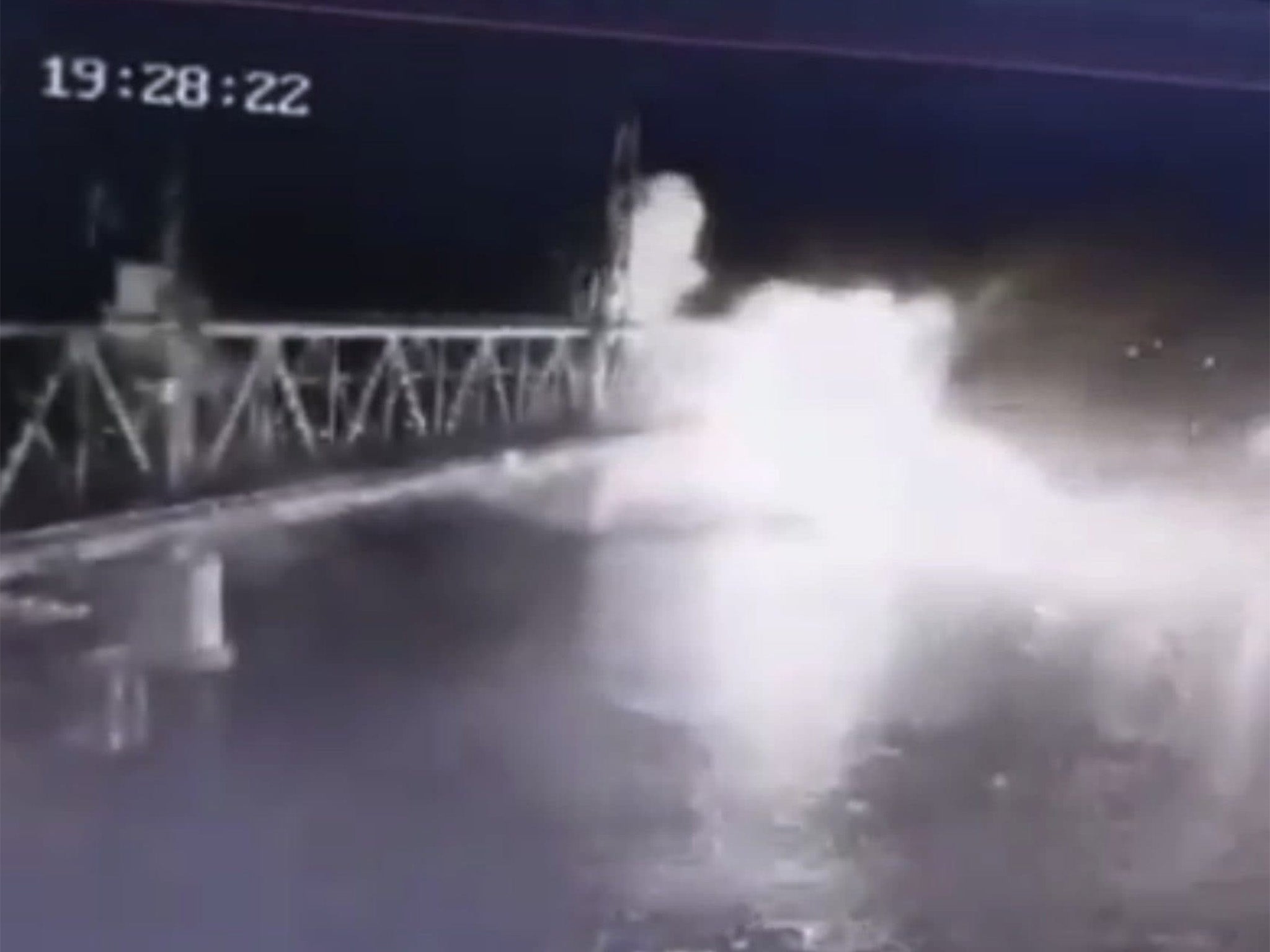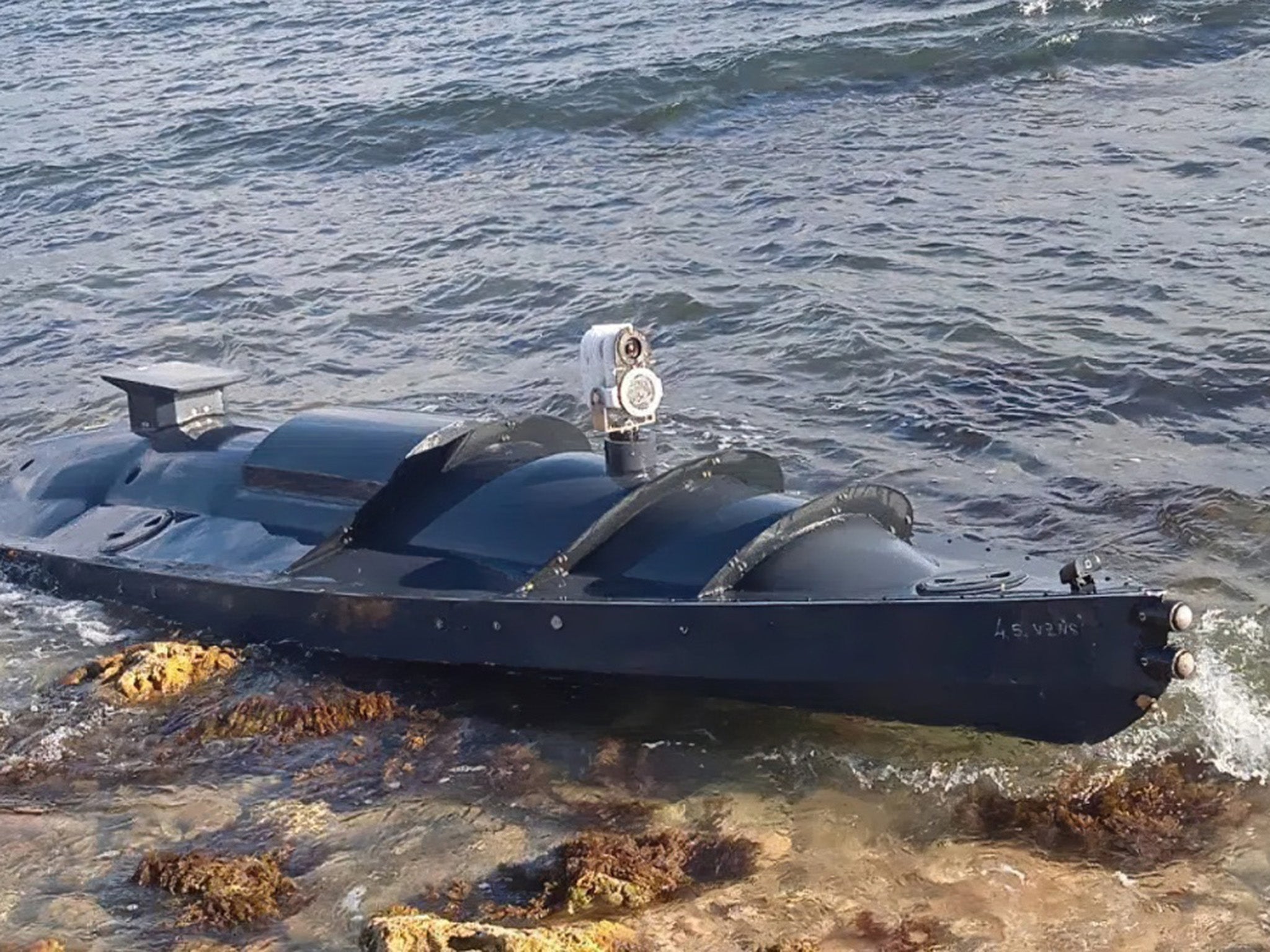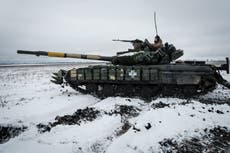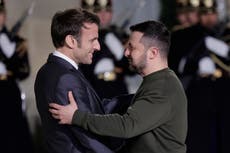Russia strikes key Ukraine bridge with naval drone in attack feared to spell trouble for Kyiv’s navy
Kyiv may need to rethink naval strategy after latest Russian attack on Odesa, say analysts
Russia attacked a key bridge in Ukraine’s Odesa region, in what is understood to be Moscow’s first use of a naval drone.
Grainy surveillance footage from Friday night showed a fast-moving object slamming into the Zatoka bridge near the strategic port city before exploding.
Ukraine’s armed forces commander, Gen Valeri Zaluzhnyi, said he feared Russia’s turn to using water-based uncrewed devices posed a threat to civilian shipping in the Black Sea.
But military analysts said the more pressing consequences would be for Ukrainian naval strategy. “Russia was not known to have these types of drones, or to think in these terms,” said HI Sutton, a defence analyst and Open Source Intelligence reporter, adding that the strike posed a “major new threat for Ukraine”.

He said: “If Russia is able to use these explosive drones against Ukrainian coastal targets, but Ukraine can no longer attack Russian warships in the same way, we may see another shift in the war in the Black Sea. This time in Russia’s favour again.”
The bridge, which was targeted by Russian missile strikes early in the war, serves the rail line to Romania, which is a key conduit for Western arms supplies.
Ukraine did not acknowledge the strike until around 24 hours later when Gen Zaluzhnyi said he had shared his concerns in a call with US chair of the Joint Chiefs of Staff (JCS), Mark Milley. The JCS did not immediately respond to a request for comment fromThe Independent.
The Kremlin’s Ministry of Defence did not comment on the use of naval drones but Russian military bloggers said Moscow began developing such munitions after finding a Ukrainian uncrewed boat off the coast of Crimea in September.

Igor Korotchenko, a retired colonel of the Russian armed forces who frequently comments on the conflict on Russian state TV, said on Saturday that such drones should be equipped with a more powerful load of explosives to inflict more significant damage.
The strike came as Ukrainian officials said a long-anticipated Russian offensive had begun in the eastern Donbas region. But Ukraine’s military intelligence spokesperson, Andriy Chernyak, told the Kyiv Post that “Russian command does not have enough resources for large-scale offensive actions”.
Russia launched the 14th round of massive strikes on Ukrainian energy facilities and other vital infrastructure on Friday. High-voltage infrastructure facilities were hit in the east, west and south of Ukraine, resulting in power outages in some areas, continuing Moscow’s efforts to break the spirit of Ukrainian civilians by leaving them without heat and water in the bitter winter.
Ukraine’s energy company, Ukrenergo, said that the situation was “difficult but controllable”, adding that power rationing would continue in some areas.

Meanwhile, the owner of the Wagner Group of mercenaries fighting with Russia predicted that the war could drag on for years.
Yevgeny Prigozhin said in a video interview released late on Friday that it could take 18 months to two years for Russia to fully secure control of Ukraine’s eastern industrial heartland of Donbas. He added that the war could go on for three years if Moscow decided to capture broader territories east of the Dnipro River.
The statement from Mr Prigozhin, a millionaire who has close links to Russian president Vladimir Putin and was dubbed “Putin’s chef” for his lucrative Kremlin catering contracts, marked a recognition of the difficulties that the Kremlin has faced in the campaign, which it initially expected to wrap up within weeks when Russian troops invaded Ukraine on 24 February.
Additional reporting by AP
Join our commenting forum
Join thought-provoking conversations, follow other Independent readers and see their replies
Comments



Bookmark popover
Removed from bookmarks